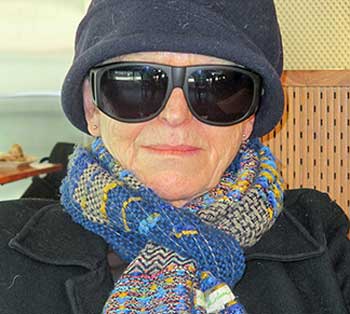Nonfiction |
Has Any Writer Ever Had a Happy Childhood?
|
|
Certainly, no French writer. In 1958, when I was in my early adolescence, I read Vipère au Poing (“Viper in the Fist”) an autobiographical novel, or as the French say, an autofictitious novel, by Hervé Bazin. The cover represented the fist of a young man strangling a snake; the image was almost unbearable to look at, so realistically had it been drawn. Publishers have since dropped this cover and replaced it with a sanitized portrait of the Mother.
The “action” takes place in the ancestral home of a respectable, well-to-do bourgeois family, near Angers on the Loire River. The Loire Valley: Cradle of Renaissance chateaux, poets and writers, where the purest French is supposed to be spoken. Yet the book is far from idyllic. The family: Jean, the narrator; his brothers and parents; an aunt who is a countess; an uncle, representative of the Vatican in France; the governess; the cook; the maids; and a series of abbots in charge of education. The mother imposes an insupportable tyranny on her four sons. She hits them and deprives them of food and warmth. She demands that they confess their sins in public daily. The boys name her Folcoche, a combination of folle (crazy woman) and cochon (pig). A folcoche, in the local patois, is a sow that devours her young at birth. The reciprocal hatred between mother and son is palpable and implacable. Here is an example: The young narrator is fantasizing about talking to his mother: “I’m talking to you, Folcoche, do you hear me? Yes, you do. I’m going to tell you ‘You’re ugly. You have dry hair, your chin is out of order, your ears are too big. You’re ugly, my mother. If only you knew how much I don’t like you. I could tell you I hate you, but it would be less strong’.’” Hatred and vengeance are the motivating forces of Bazin’s writing; he claimed that hatred is a more powerful emotion than love. Bazin’s Vipère au Poing, his first and best book, was an instant bestseller and is now part of the curriculum in French middle schools. It was a corrosive book which attacked the provincial bourgeoisie, Catholicism, and family: the staples of France in those days. It is written in classic French—the writer is erudite, dropping mythological names with great ease and precision—yet his voice sounds like “one of the people” in its syntax, if not in his vocabulary and grammar: “I am, I live, I attack, I destroy. I think, therefore I contradict.” At about the same time, Jean-Paul Sartre claimed that “To think is to say ‘No’.” A few years before, André Gide had written, “Families, I hate you!” The protagonist of Jules Renard’s Poil de Carotte, also an autobiographical novel, remarked that, “Everybody isn’t lucky enough to be an orphan.” Vipère au Poing is still regarded as a masterpiece. Hervé Bazin was decorated by the President of France with the highest order of La Légion d’Honneur in 1979, and in 1980 received the Lenin Prize from the hands of Leonid Brezhnev. This book marked me. Caught up in the national zeitgeist of families and family values as anathema (I did hate my father), I still felt wounded by the mutual hatred expressed so eloquently by mother and son. After reading the book, Bazin’s mother remarked: “My son did me wrong, but he made me immortal.” Bazin, Hervé. Vipère au Poing. Bernard Grasset, Paris, 1948.
|
|
About Michèle Praeger
click to read BIO
|
Please Comment
click to open a comment box |




